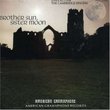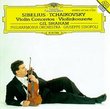| All Artists: Ludwig van Beethoven, Annie Fischer Title: Beethoven: Piano Sonatas, Vol. 3 Members Wishing: 0 Total Copies: 0 Label: Hungaroton Release Date: 12/17/1996 Album Type: Import Genre: Classical Styles: Forms & Genres, Sonatas, Historical Periods, Classical (c.1770-1830), Romantic (c.1820-1910) Number of Discs: 1 SwapaCD Credits: 1 UPCs: 789368470624, 5991813162823 |
Search - Ludwig van Beethoven, Annie Fischer :: Beethoven: Piano Sonatas, Vol. 3
 | Ludwig van Beethoven, Annie Fischer Beethoven: Piano Sonatas, Vol. 3 Genre: Classical
|
Larger Image |
CD DetailsSimilarly Requested CDs
|
CD ReviewsFluid and Natural grandpiano_57 | Burlington, CT USA | 06/29/2001 (5 out of 5 stars) "Annie Fischer's complete recordings of the Beethoven piano sonatas are a treasure. Recorded during the 70's, not one was released during her lifetime. However, she did approve of final takes on all 32 before she passed away and thankfully, these great performances are finally available. She has an expressive tone the displays all the nuances of Beethoven's far-reaching set. She has a knack for capturing the perfect tempo every time. I regularly return to any of these recordings, including this one, to just rediscover these superb renditions. Any in this series is a solid purchase you will enjoy again and again. And whoever said Stiff and Labored is really hearing a different set of recordings then most everyone else who has sampled this treasure chest." Annie Fischer's Beethoven Piano Sonatas Wizkid | USA | 01/12/2007 (5 out of 5 stars) "In "Beethoven," by JWN Sullivan ("the son of a poor Irish sailor"), written in 1927 and never out of print since, the author describes the last movement of the Hammerklavier sonata as "the expression of the final refusal of annihilation, even if no hope and object be left in life." If this sort of thing sounds like nonsense to you, then you don't need Annie Fischer's performances of the Beethoven sonatas. If Sullivan's words speak to you, and you can already hear it in the performances of the sonatas you know, then again you needn't purchase Fischer's set. If, however, Sullivan's words ring true yet you have never found a performance that adequately embodies the truth that you long to hear, then Fischer's performances are for you.
That is perhaps the simplest way I can explain why I love these CDs. No other set I know (save, perhaps, Schnabel's) satisfied me, whatever fine qualities it might possess. I am thinking of Kempff, Goode, Roberts, Frank, Kuerti, Brendel, Kovacevich, Arrau, Perl, and Gulda, all of whose sets I have owned and listened to for years and then either given away or sold, because I could not hear in them the full range of states I know are expressed in the Beethoven sonatas. Besides Fischer, Schnabel alone has the spiritual depth and intellectual power to bring forth all the meaning of those phases of existence, yet the sound is distracting and there are a few occasions where he seems to put showmanship before communication. To make it even simpler, I will say that if, like me, you find Furtwangler's interpretation of the Beethoven symphonies (particularly those recorded during the war) revelatory in a way that no other performance has yet matched, then Fischer is to the sonatas what Furtwangler is to the symphonies. (If you don't know Furtwangler's recordings, more's the pity. They are available from Music & Arts.) A more complicated way to explain would be to discuss the differences in cultural life (and therefore all life) wrought by what Walter Benjamin called "the age of mechanical reproduction," when recordings and reprints have flooded the world with what Lyotard calls "simulacra" of reality, so that we feel as though we have had an experience, though there are no emotional or intellectual traces of it left afterward. Fischer somehow avoided being caught up in "the concert industry," so her performances were genuine communal experiences between the composer, the performer, and the audience (not the empty gestures of practiced automata, like our prolific technical miracles). What's more amazing is that through what must have been an incredibly painstaking process of "patching in" (much like what Glenn Gould explains he did in his great Bach recordings), over several years and contrary to her own predilection Fischer managed to recreate that experience in the isolation of the recording studio so that we who never heard her in performance can nevertheless participate in it. I was briefly tempted to try to justify some of my claims about Fischer's set by analysis, but even if I were adequate to the task it's absurd in this forum, so I will just baldly make the claims, and you may accept or reject them as you wish. First, Fischer understands and conveys the meaning of virtually every phrase, every contrapuntal line, every harmonic development, every dynamic contrast in a way that is nothing short of revelatory. Second, she plays with something like the range of touches, colors, expressions that were attributed by listeners to Beethoven's own playing, so that she has the heartbreaking delicacy of the adagio in op. 110 and the heaven-storming thunder of the allegro in op. 57, as well as everything in between. Third, the sound is finally adequate to the vision, amazingly "present" and beautiful, never diffuse or hazy, but really in the same room. Fourth, the packaging is beautiful, each CD in a paper sleeve accompanied by a fine booklet in English, French, German, and Hungarian, all contained in a super-slim high quality box. I am deeply grateful to Hungaraton (apparently now a subsidiary of Sony) for making this set available. Of course, the price is very high, though I was able to find it new at Video Warehouse and at Best Prices for just over $100. If, like me, you love this music, you will likely feel that it is well worth it. " |

 Track Listings (11) - Disc #1
Track Listings (11) - Disc #1




![Across The Universe [Deluxe Edition]](https://nationalbookswap.com/cd//m/51/1251/1241251.jpg)



